1. No Overnight Parking Just Anywhere
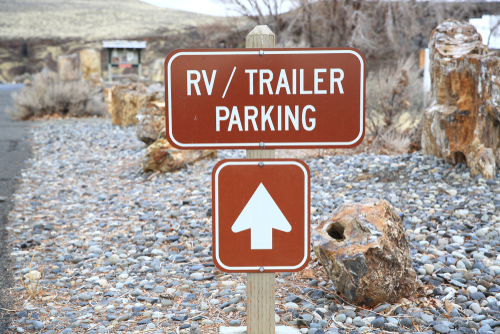
You’d think owning an RV means you can park anywhere, but not quite. Many cities have strict “no overnight parking” ordinances, especially in downtown areas or near beaches. That’s because local governments worry about waste disposal, noise, and congestion from RVs staying too long. It’s meant to keep neighborhoods orderly, but it often leaves travelers circling parking lots late at night.
Instead, RV owners rely on apps like Campendium or iOverlander to find legal overnight spots. Walmart lots, Cracker Barrel restaurants, and some truck stops still allow it—but it’s never guaranteed. Managers can revoke permission at any time, and local laws might override store policies. So, “freedom on wheels” sometimes means “freedom… with a curfew.”
2. Dump Station Regulations Are Serious Business
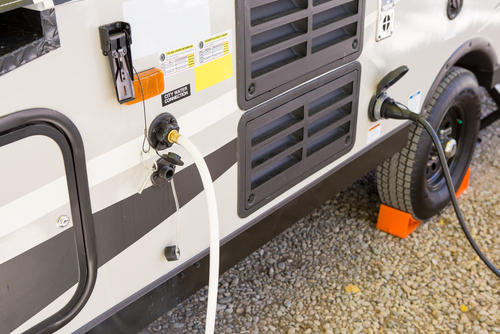
You can’t just empty your gray or black water tanks anywhere you want. Dumping waste outside of designated stations is illegal in every U.S. state because of contamination and public health risks. It’s one of those laws that exists for obvious reasons—but the enforcement can feel intense when you’re just trying to hit the road again. Park rangers and campground hosts will fine you hundreds if you break it.
RVers often have to plan their routes around dump station locations, which makes spontaneous travel tricky. Some stations are only open certain hours or require small fees. During busy seasons, lines form—yes, lines—to dump waste. It’s a reminder that even in a home-on-wheels, sanitation rules still rule you.
3. Quiet Hours Are Strictly Enforced

Most RV parks and campgrounds enforce “quiet hours,” usually from 10 p.m. to 6 a.m. That means no loud music, no generators, and minimal outdoor chatter. It might seem overkill, but when rigs are parked just feet apart, sound carries easily. The idea is to make sure everyone can actually rest after a long day on the road.
Still, it can feel a little like living in a sleepy neighborhood with invisible walls. If you forget and start your generator to charge a phone at midnight, expect a knock or even a warning notice. Repeat offenders can be asked to leave. The open road suddenly starts feeling like a gated community.
4. Campfires Have Their Own Rulebook
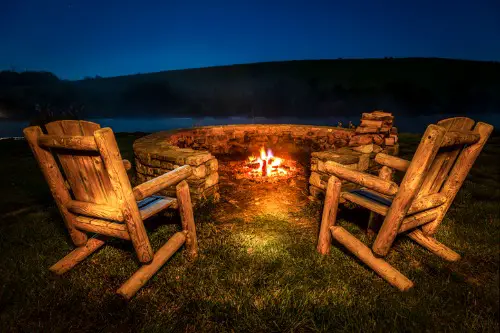
You can’t just build a fire wherever your RV stops. Most public lands and campgrounds require fires only in designated fire rings, and many ban them completely during dry seasons. It’s all about preventing wildfires, which have become a major threat in the West. Rangers patrol for illegal campfires and hand out serious fines when they find one.
But the rule does make sense—one spark can burn thousands of acres. RVers who want the cozy campfire vibe often carry propane fire pits, which are allowed even during burn bans. It’s a neat workaround, though it’s not quite the same as a crackling wood fire. Turns out even roasting marshmallows requires permission slips.
5. Some States Limit How Long You Can Stay
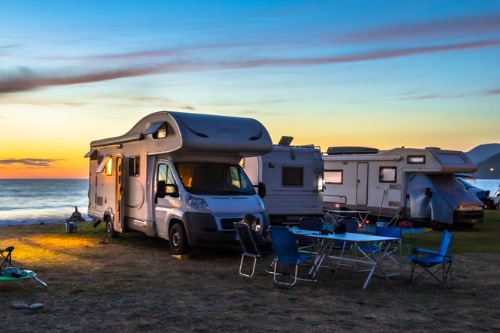
If you love a particular park, don’t get too comfy—some places limit your stay. National forests, for example, often cap camping at 14 days within a 30-day period. It’s meant to prevent people from setting up semi-permanent homes on public land. But for full-time RVers, it can feel like a forced eviction notice from nature itself.
These time limits keep spots open for everyone, which is fair. Still, it makes “settling in” a tricky concept. You might have to move a few miles just to reset your clock and return later. So much for parking under that perfect pine tree all summer.
6. You Can’t Just Tow Any Weight You Want
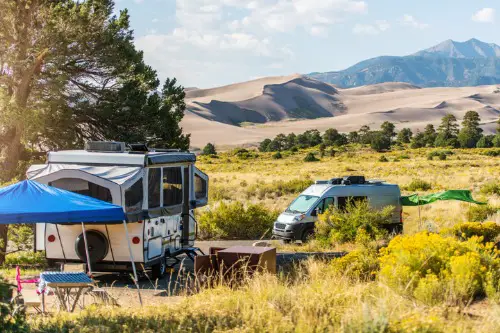
Every RV has a specific “gross vehicle weight rating” (GVWR), and going over it is illegal. That includes everything—water, gear, food, and even passengers. Police can issue fines or pull unsafe rigs off the road. It’s all in the name of safety, but it means you have to think twice before adding that second kayak or generator.
Weigh stations along highways sometimes require RVs to pull in, especially large ones that resemble semi-trucks. It’s not as common as with commercial vehicles, but the laws apply. Overweight RVs are dangerous because they handle poorly and can blow tires easily. The dream of “packing it all” quickly becomes an exercise in ruthless minimalism.
7. Propane Rules Are Surprisingly Complicated
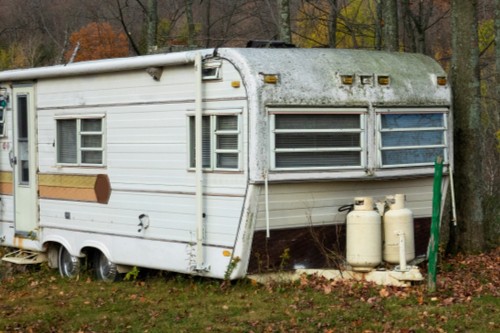
Propane is the lifeblood of RV life—it powers stoves, fridges, and heaters. But there are tons of restrictions on how and where you can fill, transport, and even drive with it. Many tunnels and bridges ban propane tanks entirely because of explosion risks. That means taking long detours just to stay compliant.
Even some ferries and state parks check propane levels or require tanks to be shut off before entry. It’s safety-first, sure, but it makes road trips feel more like navigating a maze of invisible rules. RVers often memorize which tunnels are off-limits, or rely on apps that track propane restrictions. One wrong turn, and you’re backtracking 50 miles.
8. Generator Hours Aren’t Just Suggestions

If you rely on a generator for power, you’ll learn quickly that “generator hours” are sacred. Most campgrounds restrict their use to certain blocks—say, 8–10 a.m. and 4–7 p.m. It’s about reducing noise and exhaust fumes for everyone. But when your fridge starts beeping at 9 p.m., you’re out of luck.
Solar panels have become popular partly because of this rule. They let you keep things running without breaking campground peace. Still, not every day is sunny, and batteries only last so long. It’s one more reminder that even off-grid living isn’t completely free from regulation.
9. Boondocking Isn’t a Free-for-All
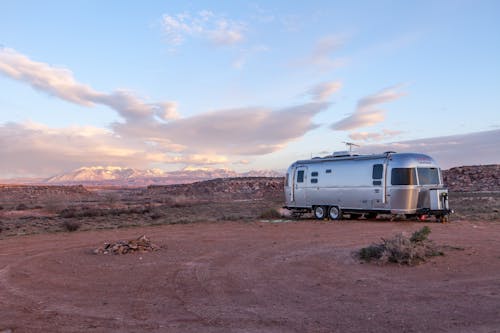
Boondocking—camping off-grid on public land—sounds like pure freedom, but even that has rules. Most areas managed by the Bureau of Land Management (BLM) or the Forest Service limit stays to 14 days. You’re also required to pack out every scrap of trash and minimize your “footprint.” Rangers do check, and they can fine or ban offenders.
It’s all meant to protect fragile ecosystems from overuse. But as more RVers chase solitude, these areas get crowded—and the rules get tighter. Some zones now require free permits just to track visitors. So even “off the grid” comes with paperwork.
10. Some Roads Are Off-Limits to Big Rigs
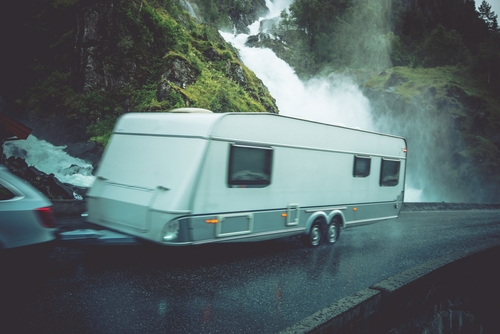
Not all scenic routes are RV-friendly, no matter how tempting they look on the map. Many national parks have vehicle length or height limits—think tunnels, hairpin turns, or narrow mountain passes. Violate those, and you might end up stuck or fined. For example, Zion National Park requires an escort (and a fee) for oversized vehicles through its tunnel.
The rules prevent accidents, but they also limit spontaneous exploring. Sometimes you have to skip a stunning overlook because your RV simply won’t fit. GPS apps designed for truckers help, but they’re not perfect. It’s humbling to realize that the open road still has gates—just bigger ones.
11. You Can’t Wash Your RV Just Anywhere
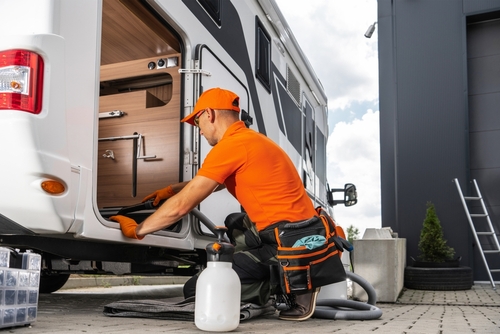
Washing your RV seems harmless, but it’s actually restricted in most campgrounds. That’s because runoff can carry soaps and chemicals into nearby water systems. Many parks require you to use designated wash stations or waterless cleaning products. Some even fine guests caught spraying down their rigs on-site.
It’s another rule grounded in environmental care, not control. But when you’re on a long trip, dust and bugs pile up fast. Without a proper spot to clean, your shiny RV can start looking like a mud sculpture. Freedom may be dirty, but not by choice.
12. Alcohol Rules Are a Patchwork

In some states, you can’t have an open container in your RV—even if it’s parked. Others allow it only when you’re stopped and hooked up at a campground. The laws vary wildly, and police enforce them differently depending on how your RV is classified (vehicle vs. residence). That means a toast at the wrong rest stop could technically be illegal.
RVers often learn these laws the hard way—or by joining travel forums full of cautionary tales. The inconsistency makes planning tricky, especially when crossing state lines. It’s a classic case of rules written before vanlife became mainstream. You’re mobile, but the laws are stuck in park.
13. Pets Aren’t Always Welcome Everywhere

While many campgrounds are pet-friendly, there are plenty that aren’t. National parks, for example, often restrict pets on trails to protect wildlife. Some RV resorts even limit dog breeds or sizes, citing insurance reasons. It’s frustrating for travelers who treat their pets like co-pilots.
To comply, RVers plan routes around pet-friendly stops and sometimes pay extra for “dog zones.” Breaking the rule can mean fines—or being asked to leave entirely. Even leash rules are enforced, sometimes with surprise patrols. It’s freedom on four wheels, but not always for four paws.
14. You’re Expected to Keep Your Spot “Picture Perfect”
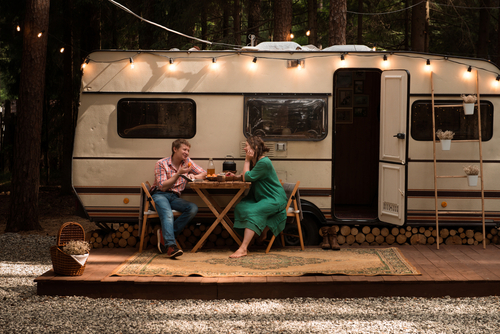
Every RV park has a version of the “clean site” rule. That means no clutter, no drying laundry outside, and no storing extra gear around your rig. It’s about maintaining a tidy, resort-like atmosphere—but it can feel like an HOA on wheels. Some places even do visual inspections before you check in.
These rules aim to make everyone’s stay pleasant, but they can stifle individuality. Want to hang a hammock or set out solar lights? Better check the handbook first. The irony of “life on the road” is that it sometimes feels more regulated than a suburban neighborhood.
This post 14 RV Rules That Make “Life on the Road” Feel Strangely Controlled was first published on Greenhouse Black.
